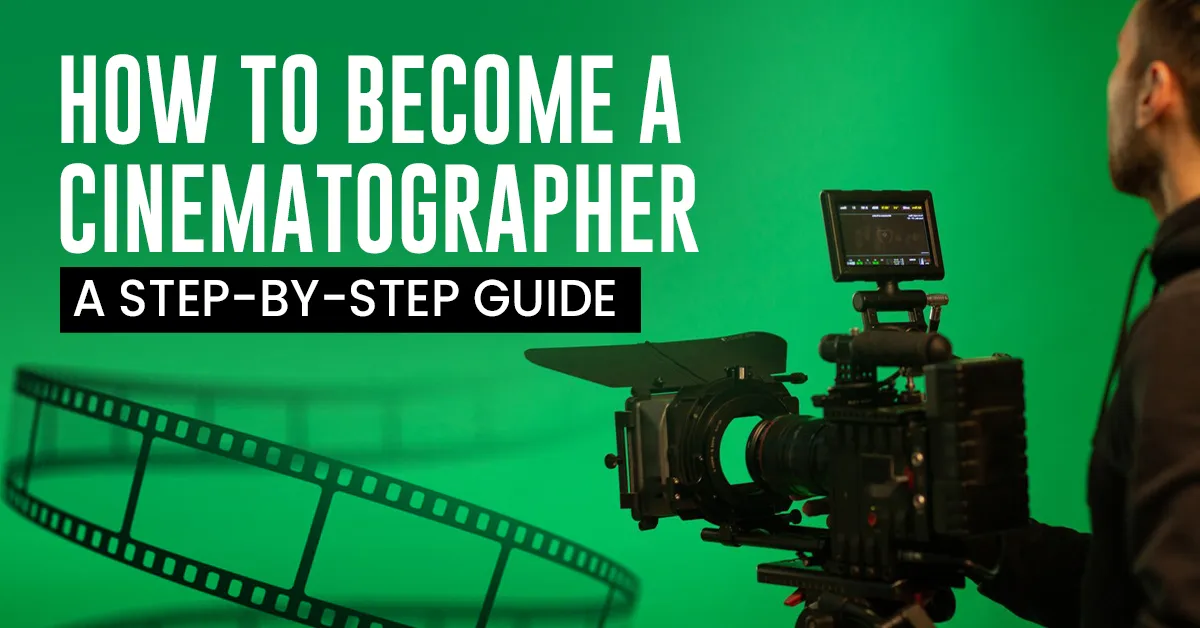


28, April 2024
Becoming a cinematographer is the aspiration of many people intrigued by the art of cinema. With your skill in camera techniques, lighting, and visual storytelling, you are at the core of bringing stories to life on the screen. This piece, broken down into eight essential steps, is an exhaustive guide to laying the groundwork for the journey of becoming a cinematographer and turning your fervour for the movies into a thriving profession.
Basic - If you’re thinking about becoming a cinematographer, you should have a good understanding of the basic principles of filmmaking. I suggest that you take a few courses or workshops on Film Theory, Screenwriting, and or directing before jumping into cinematography. This will give you a good understanding of the kind of storytelling processes and how cinematography can be used to enhance it.
Acquiring Proficiency in Technical Skills - You should be experienced with a variety of film cameras, lenses, and different lighting equipment that is common for photography and filmmaking purposes. You’ll need to understand how to set up the cameras, how to implement certain camera settings, film exposure techniques, and how to use the different types of lenses and lens filters to create different desired effects. You’ll need to know how to utilize the different types of lighting equipment to create the desired effects to improve production value to the film you’re working with. Most importantly you’ll need to know how to set up the shots according to the script to capture the visual narrative of the film.
Know About visual Style - Play around with different visual styles to discover your unique voice as a cinematographer. Study the work of accomplished cinematographers and examine their techniques to get ideas on how to put together intriguing visuals.
Earn Experience - Actual experience in the field is invaluable when trying to reach that next level. Get involved with student films and independent projects. Work as a camera assistant to actually be in a production environment many times before you ever actually plan on being a full-fledged cinematographer. See how certain things work by doing the work. I also Mentioned getting to work with different cameras, this can be a step to working on those cameras in the real world.
Construct Your Portfolio - Shoot a variety of projects in different genres and styles to demonstrate your range as a cinematographer. Create a cinematography reel that showcases your best work and reflects your creative vision and technical skill.Attend as many film industry events, film festivals, and workshops as you can. This is where you will meet fellow filmmakers, directors, and maybe even producers. Making relationships can sometimes set you up for a project or job.
The journey to become a cinematographer necessitates dedication, creativity, and a profound appreciation for visual storytelling. Leading you through eight strategic steps, this text guides you to become a cinematographer, allowing you to relate your cinematic aspirations to a screen. Do you feel prepared to take that first step and move toward the goal of your lifetime, shooting a career that energizes you? An astounding period of cinematography could just start with your guidance. We need to make the philosophical journey that one must begin the journey from him or herself.
Are you prepared to follow your love for filmmaking and take on the role of cinematographer? Utilize the guidelines provided in this manual to get the ball rolling, and be proactive in searching for chances to acquire experience and put together a portfolio. Your quest to be a cinematographer commences right away - don't miss the boat, and start conjuring up miracles on film today!
Here is how you break into the film industry as a cinematographer.?
Well, first of all the best way is to always reach out to people and reach out to photographers or directors that worked on the last film you watched or even the film that you like the most and enjoyed the most and see what are some ways you can start maybe working with them. Look for Opportunities to gain experience on the film set. So you know, maybe instead of just shooting a small project with you and your friends you know, try to work out you know, there are a lot of film, current assistant cameraman are some sort of interning and they’re always looking for free help, so the idea is that you say, you know, even if you’re not going to be on the camera department is, at least you’re going to be able to see how that department interact with the other departments and the other how the other department, do whatever you can to get yourself on the film sets.
What skills are essential for a successful career as a cinematographer?
In follow up to what I said before. Some things I think are important are being able to work a camera as well as lighting. I think these are two technical things that you definitely need to be successful and you also need to be creative. I think that as a successful cinematographer being able to envision things creatively and being able to storytelling is huge as well. I also think whatever it is that you are filming you need to know how that audience is going to receive what it is that you are doing and you need to know what they want to see.